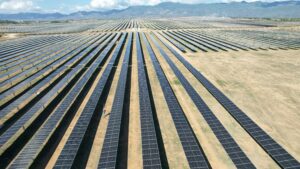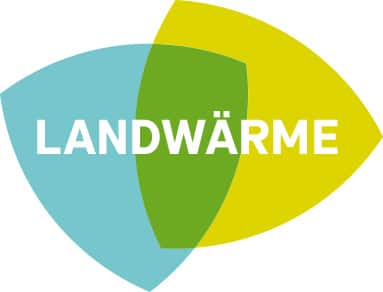Legislating for decentralized energy: the new draft Austrian Electricity Act
Mirella Johler
3 April 2024
Written by Mirella Maria Johler, University of Innsbruck/Baker McKenzie Vienna
In January 2024, the Austrian federal legislator published a draft version of the amended Electricity Act (“Elektrizitätswirtschaftsgesetz”). The draft attempts to catch up with the country’s delay in transposing the 2019 EU Electricity Market Directive into national legislation. Thereby, the draft introduces certain new configurations of a decentralized energy market (largely) based on renewable energy. Some of them are discussed below.
To begin with, the draft allows customers to conclude contracts with multiple suppliers at the same time. Interestingly, the initial supplier is not allowed to veto the customer’s decision to enter a contractual relationship with alternative suppliers. This might make it more attractive to purchase electricity from an energy community besides upholding a contract with the incumbent supplier. Additionally, this provision might raise the relevance of power purchase agreements as a means of direct marketing of electricity without the latter depending on direct lines. Observers thus argue that power purchase agreements might become of particular interest for companies that do not fall under the European Commission’s definition of small and medium enterprises[1] and are thus not allowed to join (renewable) energy communities. However, from a regulatory perspective, it remains unclear to which degree power purchase agreements must remodel supplier’s rights and duties as laid down in the Austrian Federal Electricity Act. For the time being, the draft and the currently applying federal statute don’t answer that question. It thus remains at the hands of lawyers setting up contractual terms to consider the specific needs of the contractual parties. While one might consider the absence of regulatory provisions as a playing field for project innovation, one should also remember that the Austrian legal system is per se code-based. This means that business partners are not used to lengthy and detailed contractual arrangements because contracts usually invoke the statutory law rather than putting down every detail in writing. Therefore, it remains to see if the Austrian legislator will eventually decide to introduce regulatory minimum standards which could help to spread the usage of power purchase agreements beyond larger enterprises.
Further, the draft introduced the concept of aggregation. Interestingly, aggregation might be performed by either electricity companies or independent third parties. Thereby, the draft states that suppliers are not allowed to discriminate against customers who have chosen to enter a contractual relationship with an independent aggregator. This means that aggregation is perceived as a field of possible competition on the level of services. The explicit mention of a non-discrimination principle is notable because it can be assumed that incumbent suppliers have an advantage over independent third parties. After all, the former already have experience and knowledge of customer data whereas independent third parties might be start-ups that have to test the grounds first before they can develop meaningful business models. However, aggregation also presents a chance for incumbent electricity companies to transform themselves from a unidirectional centralized energy supplier into a bidirectional service provider that collects multiple customers’ electricity loads to offer market flexibility.
In this regard, it is interesting to note that the draft no longer uses the word “provider” (“Versorger” in German). In German, this term implies that the latter has certain duties of protection vis-à-vis customers. This legal understanding was illustrated by heated debates and court battles throughout 2022 and 2023, regarding the ability of providers to change contractual price terms unilaterally. The draft now only talks of “suppliers” which could be read as the dawn of a paradigm shift towards greater responsibility of customers, such as the introduction of the concept of “active customers” by the 2019 EU Electricity Market Directive. This change of wording might also reflect the growing relevance of concepts of individual or collective self-supplies with renewable energy. However, the opening of the federal legislator appears not sufficient to foster the uptake of decentralised energy. Distributed generation requires other pieces of legislation, both at national and subnational level. Examples thereof include the rules governing condominium and spatial planning. Challenges could arise especially with regard to property rights and landscape protection; the former might also give rise to legal battles in front of the constitutional court. Nevertheless, such accompanying legislation at national and subnational levels would not only help to make renewable technology available at multi-party houses but would also bring them close to residential or economic conglomerations, thus reducing the need for extra land use and grid expansion.
Eventually, the roll-out of renewable energy requires legislators and regulators to rethink electricity system stability. The growing shares of renewable energy within the generation mix pose a challenge to keep the system at equilibrium. This is to say that renewable power plants might not provide enough inertia to maintain the required frequency of 50 Hertz. In this regard, it appears welcoming that the draft calls for a joint platform between distribution and transmission system operators. The platform should aid better coordination between these two grid levels. However, it remains questionable why the draft does not foresee provisions that require renewable power plants of a certain volume – such as larger energy communities – to be operated network friendly.[2] The questionable nature of this regulatory gap becomes particularly apparent when one considers that decentralized actors such as energy communities are expected to provide system services such as flexibility. The Austrian legislator could also consider making inverters and the like covered by available subsidies for energy communities and other renewable projects. Regarding system stability, it should be finally pointed out that the draft integrates the definition of electricity storage as foreseen in the 2019 EU Electricity Directive. The technology-neutral nature of that definition is worth noting because the country traditionally relied upon hydro pump storage power plants. It thus remains to be seen if the technology-neutral nature assists the roll-out of different storage technologies (such as hydrogen facilities).
While European policymakers are already revising the 2019 EU Electricity Directive, Austria is finally transposing such piece of legislation into its national legal system. The draft legislation introduces rights and duties that foster the shift towards a more decentralised energy system. However, current amendments may fall short of the ambitions set by EU legislation and may call for additional changes, also beyond the Electricity Act. Therefore, the observed fracture points spotlight policy challenges that accompany the energy transition beyond Austria and are of particular interest for further academic and practical immersion.
[1] Commission Recommendation of 6 May 2003 concerning the definition of micro, small and medium-sized enterprises, Official Journal of the European Union L 124, 20. 5. 2003, 36.
[2] At the time of writing, energy communities are not required to operate network friendly. Energy communities are neither imposed with a balancing responsibility. While the 2019 EU Electricity Directive foresaw a financial balancing responsibility for Citizen Energy Communities, the respective provision has not been transposed into Austrian law. Further, fundings for renewable energy communities do not cover inverters or the like. For the relevance of photovoltaic inverters as part of energy communities, see European Commission, Energy Community Repository. Digital Tools for Energy Communities. A Tool Kit, page 8 et seqq. https://energy-communities-repository.ec.europa.eu/document/download/eac35d1d-446f-40ee-bf9e-acea2adeaeda_en?filename=Energy%20Communities%20Repository%20-%20Short%20Guide%20-%20FINAL.pdf (accessed 18 March 2024).
Related contents
Stay in the know
Get the Lights on Women newsletter.







